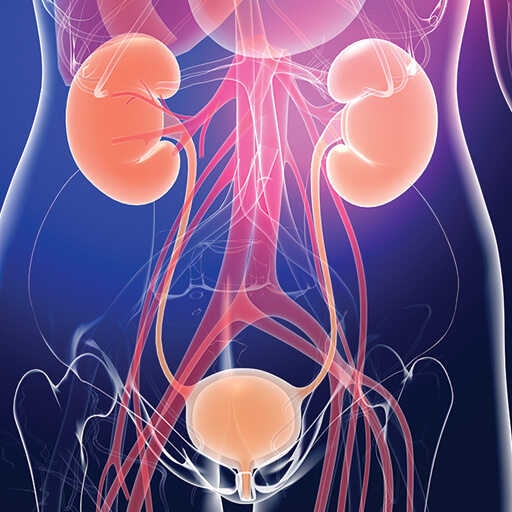Oakstone CME Comprehensive Review of Urology
Urology CME: Diagnostic Approaches, Therapeutic Advances
Comprehensive Review of Urology provides current, relevant information on adult and pediatric disorders of the male and female urinary tract, the male reproductive system, and the kidney. Led by renowned urologist Aria F. Olumi, MD, lecturers use guideline-driven information that will improve your approach to screening, staging, diagnosis, and treatment. You’ll get expert take-home points from each continuing medical education lecture, including:
- MRI of Prostate Cancer. MRI is effective in detecting focal areas of highgrade prostate cancer, providing accurate locoregional staging, and guiding targeted biopsies.
- Kidney Cancer – Laparoscopic Management. Laparoscopic and robotic nephrectomy is now the standard care for most renal cell carcinoma patients. It offers significant advantages in morbidity while maintaining oncologic outcomes of open surgery.
- The Etiology and Treatment of Pelvic Organ Prolapse. Vaginal wall descent is a normal part of aging; however, once the bulge protrudes past the hymen, most women are symptomatic.
- Advances in Systemic Therapy for Management of Muscle Invasive Bladder Cancer. Neoadjuvant chemotherapy remains the standard of care for muscle-invasive bladder cancer.
- And many more!
Cost: $1095
View Offer chevron_rightDetails
Urology CME: Diagnostic Approaches, Therapeutic Advances
Comprehensive Review of Urology provides current, relevant information on adult and pediatric disorders of the male and female urinary tract, the male reproductive system, and the kidney. Led by renowned urologist Aria F. Olumi, MD, lecturers use guideline-driven information that will improve your approach to screening, staging, diagnosis, and treatment. You’ll get expert take-home points from each continuing medical education lecture, including:
- MRI of Prostate Cancer. MRI is effective in detecting focal areas of highgrade prostate cancer, providing accurate locoregional staging, and guiding targeted biopsies.
- Kidney Cancer – Laparoscopic Management. Laparoscopic and robotic nephrectomy is now the standard care for most renal cell carcinoma patients. It offers significant advantages in morbidity while maintaining oncologic outcomes of open surgery.
- The Etiology and Treatment of Pelvic Organ Prolapse. Vaginal wall descent is a normal part of aging; however, once the bulge protrudes past the hymen, most women are symptomatic.
- Advances in Systemic Therapy for Management of Muscle Invasive Bladder Cancer. Neoadjuvant chemotherapy remains the standard of care for muscle-invasive bladder cancer.
- And many more!
Topics Covered
- General Urology
- Infectious and Inflammatory Disease
- Infertility and Sexual Dysfunction
- Male Genitalia
- Trauma
- Urinary Obstruction and Nephrolithiasis
- Adrenal Disease
- Renal Disease
- Incontinence and Voiding Disorders
- Bladder
- Prostate
- Pediatric Urology
Learning Objectives
At the conclusion of this CME activity, you will be better able to:
- Discuss appropriate imaging for disorders of the prostate
- Explain the therapeutic approaches to recurrent urinary tract infections
- Describe office care and surgical approaches for transgender patients
- Define the diagnostic approach to a patient suspected of having penile cancer
- Explain the initial surgical approach to a patient with bladder trauma
- Distinguish between medical and surgical management of urinary lithiasis
- Compare the advantages of open surgical management and laparoscopic management for kidney cancer
- Differentiate which patients are appropriate for surgical management of urinary continence and which are appropriate for medical management
- Identify the best patient population for active surveillance of prostate cancer
- Explain the causes of urinary tract infections in children
- Summarize the neurogenic bladder issues in the adult spina bifida patient
Target Audience
The activity was designed to provide urologists, urology fellows and residents, surgery residents interested in urology, other licensed individual practitioners or ancillary staff interested in urology, or who participate in the delivery of urologic care with current, relevant, and condensed information needed to pass certification and recertification exams.
Additional credit info
Oakstone Publishing designates this enduring material for a maximum of 62 AMA PRA Category 1 Credits™ Physicians should claim only the credit commensurate with the extent of their participation in the activity.

